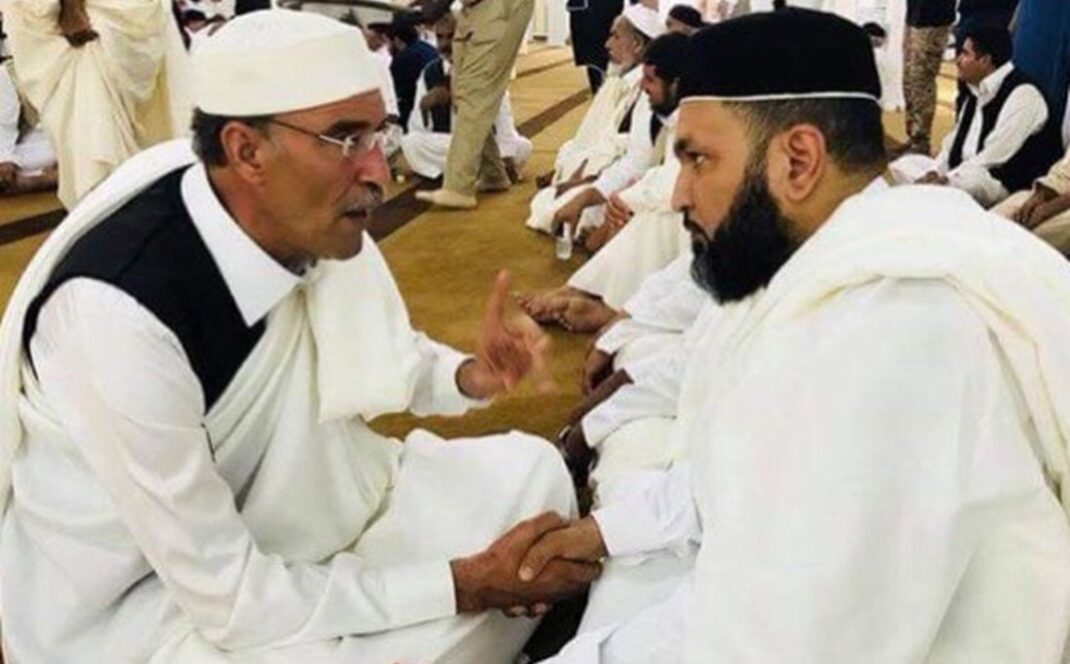By Noura Doukhi
 By gaining the confidence of Parliament almost two weeks ago, the new transitional government appears to have taken an important step forward in the continuation of the political unification process. However, many challenges remain to be overcome.
By gaining the confidence of Parliament almost two weeks ago, the new transitional government appears to have taken an important step forward in the continuation of the political unification process. However, many challenges remain to be overcome.
Last Tuesday, the French president announced the reopening, from March 29, of the French embassy in Tripoli, closed since 2014 due to political instability. Welcomed by Emmanuel Macron at the Elysee Palace, the President of the Libyan Transitional Presidential Council Mohammad Younes el-Menfi was promised “full support” to the new Libyan authorities.
With this announcement, Libya finds a semblance of normalization as a unified government has just taken office. The victory of the list led by Abdel Hamid Dbeibah (Prime Minister), elected on February 5 by the seventy-five members of the Libyan Forum gathered in Switzerland, crowned a process initiated in November in Tunis under the aegis of the UN.
The objective: to unify the rival authorities of Tobruk, in the East, and Tripoli, in the West, opposed during a conflict of more than six years, under a government of national unity responsible for leading the country until the presidential and legislative elections are held next December.
On March 10, a sign of the progress of the political unification process, the transitional government obtained in Sirte, located halfway between the regions of the East and the West, the confidence of Parliament before taking the oath. five days later.
“The Geneva process on February 5 itself surprised a lot of people. The big news of the last few days is the vote of confidence of March 10 where 132 parliamentarians met for the first time in several years and voted in favor of giving confidence to this new cabinet ”, observes Jalel Harchaoui,
The bet was not won, however, while several observers highlighted the risk of frustrations in the East linked to an imbalance of forces within the recently elected list.
Born in Misrata, in the north-east of the country, the new President of the Council is however closer to the Tripolitan elites and had notably condemned the offensive led by Marshal Haftar on the Libyan capital.
To win Parliament’s vote of confidence, the head of the new transitional government had to be flexible and ignore his traditional alliances.
“Dbeibah went to see Saleh (president of the House of Representatives in Tobruk), a figure from Eastern Libya, telling him that if the latter did not like a minister, there was no problem to replace him“, Jalel Harchaoui notes.
Risk of clashes
But despite the reunification between Tripolitania (West) and Cyrenaica (East), symbolized by the vote of confidence of March 10, political unity is far from guaranteed in Libya.
“Forming a unity government through a UN-led process is one thing, ensuring that the new government is able to govern and that the transition process is sustainable is an entirely different task”. Says Mohammad Eljarh, Libyan expert and co-founder of the Libya Outlook for Research and Consulting research center, for whom the way the UN-led political process was designed and implemented has created winners and losers.
“The consequences of the election results are starting to be felt by the various national and foreign actors. The losers are likely to spoil everything, and the winners to cling to power and exclude potential adversaries instead of reaching out to them and including them,” continues the researcher.
If he remains the strongman of the east and parts of southern Libya, Marshal Haftar could be one of those losers when he has apparently failed to place his men in strategic positions in government. The head of the self-proclaimed Libyan National Army (LNA) did not formally participate in the political talks, but reportedly fought behind the scenes for the post of defense minister, ultimately held by the prime minister himself.
Khalifa Haftar also saw one of his candidates for the post of Deputy Prime Minister, Saqr Bujwari, lose to someone close to Aguila Saleh, his rival from the East opposed to the marshal to obtain the exclusivity of regional representation.
Among the losers are also the Muslim Brotherhood, allies of the former Government of National Unity (GNA) of Fayez al-Sarraj, which handed over power to the Dbeibah government and the Presidential Council on March 16.
“By dint of making concessions to the hard anti-Muslim Brotherhood and anti-revolutionary camp, Dbeibah could stir up the anger of the Islamists and risk a resumption of clashes within Tripoli,” observes Jalel Harchaoui. who handed over power to the Dbeibah government and the Presidential Council on March 16.
“By dint of making concessions to the hard anti-Muslim Brotherhood and anti-revolutionary camp, Dbeibah could stir up the anger of the Islamists and risk a resumption of clashes within Tripoli,” observes Jalel Harchaoui. who handed over power to the Dbeibah government and the Presidential Council on March 16. “By dint of making concessions to the hard anti-Muslim Brotherhood and anti-revolutionary camp, Dbeibah could stir up the anger of the Islamists and risk a resumption of clashes within Tripoli,” observes Jalel Harchaoui.
While the risk of clashes cannot be ruled out, Libya also faces colossal challenges in hoping to achieve national reconciliation. “The real question is whether this new government will be able to govern,” said Mohammad Eljarh, for whom the challenges to be met are extremely numerous, including the unification of the eroding banking system and military and security institutions, resolution of the problem of militias and foreign forces, the launch of a reconciliation process and the preparation of the ground for the general elections of December 24, 2021.
While Moscow had reinforced its presence on Libyan soil by sending in reinforcements nearly 1000 fighters from the Wagner security company to assist Marshal Haftar during his attack on Tripoli, the Turks, for their part, intervened at the end of 2019 to support the opposing camp of the GNA, allowing the latter to contain the offensive.
If the ceasefire agreement signed on October 23, 2020 stipulates the departure of mercenaries and foreign fighters within three months, it is clear that more will be needed for the powers which hired them to leave Libyan soil. .
“While the character of Dbeibah embodies the desire to do business in the logic of reconstruction of the country which follows the war, these foreign powers see the opportunity to pocket a form of reward if this business takes place. Russia and Turkey know that Libya is a very wealthy country with large foreign currency reserves, and will then do everything to be part of the major projects and obtain significant concessions,” explains Jalel Harchaoui.
Beyond these concerns, the transitional government will have to take into account the demands of its population to guarantee national reconciliation. “Reconciliation is a process to be observed at the level of citizens and not of elites. It will only be effective if a form of transitional justice, adapted to the fact that one comes out of a conflict which has caused the suffering of many innocent people, recognizes this reality and repairs the feeling of impunity,” continues the latter.
“Reconciliation is a process to be observed at the level of citizens and not of elites. It will only be effective if a form of transitional justice, adapted to the fact that one comes out of a conflict which has caused the suffering of many innocent people, recognizes this reality and repairs the feeling of impunity,”continues the latter.
“Reconciliation is a process to be observed at the level of citizens and not of elites. It will only be effective if a form of transitional justice, adapted to the fact that one comes out of a conflict which has caused the suffering of many innocent people, recognizes this reality and repairs the feeling of impunity,” continues the latter.
____________





